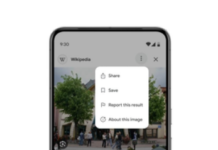New Delhi– Keeping with the global trend, 68 per cent people in India have experienced tech support scams in the past year and some of them (14 per cent) have even lost money, a Microsoft survey said on Tuesday.
Tech support scams are a problem worldwide, with three out of five people globally having experienced one in the past year and one in five losing money to fraudsters, according to the “Tech Support Scam Survey 2018” released by Microsoft’s Digital Crimes Unit.
A technical support scam refers to fraud in which a scammer claims to offer a technical support service, often via calls to unsuspecting users.
“These sophisticated scams are evolving from cold calls to fake online pop-up ads and fraudulent websites – and affect everyone, even savvy online users,” said the survey.
Additionally, the cost of these scams goes beyond monetary loss, with people reporting higher stress levels after dealing with this type of fraud.
“However, since 2016, India is experiencing fewer tech support scams, with 68 per cent in 2018 versus 80 per cent in 2016,” the findings showed.
Among those surveyed in India, 40 per cent continued with the scam while 28 per cent ignored the scam.
“While 14 per cent of people in India continued with the scam and lost money, 84 per cent experienced severe/moderate stress levels after experiencing the scam,” said the findings.
Microsoft’s Digital Crimes Unit has been working to combat this type of global cybercrime by using a data-driven approach to investigate tech support fraud networks and refer cases to law enforcement as appropriate.
It is also strengthening its products and services to better protect consumers from various fraudulent tactics and educating consumers about how to stay safe online.
If you receive a notification or call from someone claiming to be from a reputable software company, be wary of any unsolicited pop-up message on your device, don’t click on it, and don’t call the number.
“Microsoft will never pro-actively reach out to you to provide unsolicited PC or technical support. Any communication we have with you must be initiated by you,” said the company. (IANS)















